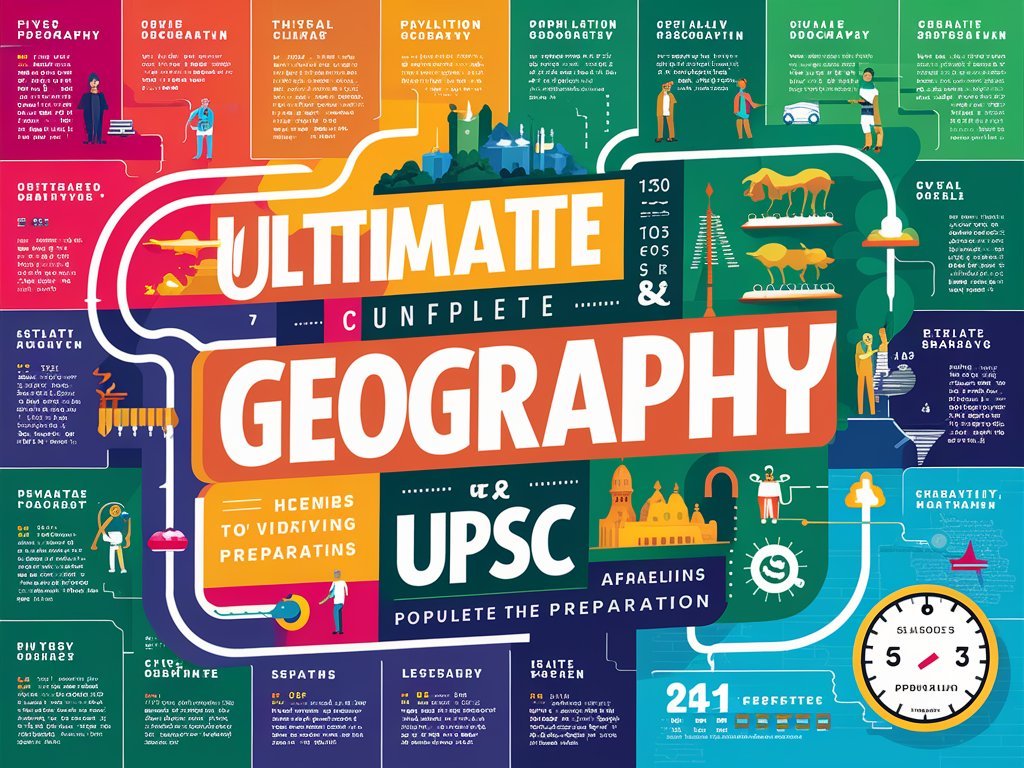
As an IAS aspirant, mastering the vast subject of geography is crucial for cracking the challenging UPSC exams. However, determining the ideal timeframe to comprehensively cover this extensive topic can be perplexing. In this comprehensive guide, we’ll explore effective strategies to help you plan and conquer geography within a reasonable duration, ensuring you’re well-prepared for the UPSC examinations.
The significance of geography in the UPSC syllabus cannot be overstated. It encompasses diverse aspects such as physical geography, human geography, economic geography, and geography of India. Neglecting this subject can severely impact your overall performance, making it imperative to allocate sufficient time and effort to its preparation.
Read Also: How to Increase General Knowledge for IAS?
While there’s no one-size-fits-all approach, dedicating approximately 90-120 days to thoroughly study geography can be a reasonable estimate. However, this timeframe may vary depending on your existing knowledge, learning pace, and study strategies.
To help you plan your geography preparation more effectively, we’ve compiled a comprehensive strategy that covers key topics, study materials, and proven techniques.
Physical Geography: Mastering the Foundations (25-35 days)
Physical geography forms the backbone of geography and encompasses topics like geomorphology, climatology, oceanography, and biogeography. Allocate 25-35 days to grasp these fundamental concepts:
- Geomorphology: Dedicate 10-15 days to studying topics like earth movements, landforms, erosion, and soil formation.
- Climatology: Spend 8-10 days understanding atmospheric circulation, weather systems, and climate patterns.
- Oceanography: Devote 4-6 days to oceans, ocean floor relief, and ocean currents.
- Biogeography: Allocate 3-4 days to studying the distribution of flora and fauna.
Human Geography: Exploring Human-Environment Interactions (20-30 days)
Human geography examines the relationship between humans and their surroundings, making it an integral part of the UPSC syllabus. Dedicate 20-30 days to covering:
- Population Geography: Study population distribution, growth, migration, and urbanization (6-8 days).
- Settlement Geography: Understand the patterns and factors influencing human settlements (5-7 days).
- Cultural Geography: Explore the influence of culture on human activities and landscapes (4-6 days).
- Economic Geography: Analyze the spatial distribution of economic activities (5-9 days).
Read Also: Is Static GK Important for UPSC?
Economic and Resource Geography (15-20 days)
This section focuses on the distribution and utilization of natural resources, as well as economic activities. Allocate 15-20 days to study:
- Natural Resources: Examine the distribution, utilization, and conservation of resources like minerals, energy, and water (6-8 days).
- Agriculture and Food Resources: Understand agricultural systems, crop patterns, and food security (4-6 days).
- Industrial Geography: Study the factors influencing industrial location and distribution (5-6 days).
Geography of India (20-25 days)
Being an Indian civil services examination, the geography of India holds significant weight. Dedicate 20-25 days to thoroughly comprehend:
- Physical Setting: Study the physiographic divisions, drainage systems, and climate patterns (6-8 days).
- Resources: Examine the distribution and utilization of natural resources like minerals, energy, and water (5-7 days).
- Agriculture and Industries: Understand the spatial patterns of agricultural and industrial activities (5-6 days).
- Population and Settlements: Analyze population distribution, growth, migration, and urbanization (4-5 days).
Mapping Skills and Geographical Information Systems (GIS) (5-10 days)
Developing strong mapping skills and familiarity with GIS is crucial for UPSC aspirants. Allocate 5-10 days to practice:
- Map reading and interpretation
- Cartographic techniques
- Geographical Information Systems (GIS) and remote sensing
Revision and Practice (10-15 days)
After completing the core topics, dedicate 10-15 days to revise and reinforce your understanding through:
- Solving previous years’ UPSC question papers
- Practicing map-based questions
- Revising key concepts and theories
Comparison of Geography Preparation Strategies
To help you visualize and compare different approaches, we’ve created a handy table:
| Strategy | Timeframe | Pros | Cons |
|---|---|---|---|
| Comprehensive | 90-120 days | Thorough coverage of all topics, better retention | Longer duration, may require extended breaks from other subjects |
| Focused | 60-90 days | Covers essentials, faster pace | May miss out on some important details |
| Intensive | 45-60 days | Quick preparation, suitable for those with prior knowledge | High risk of missing key concepts, increased stress |
Remember, geography is a dynamic subject, and staying updated with the latest developments and current affairs is crucial. Regularly refer to reliable sources like Daily Current Affairs 2024 for UPSC IAS InsightsIAS, Indian Express Today Important News for UPSC Aspirants, and Current Affairs 2024 PDF: Your Ultimate Guide to Staying Informed to supplement your preparation.
Read Also: How to Prepare GK for UPSC: Your Ultimate Strategy Guide
Effective time management and a well-structured study plan are key to mastering geography for the UPSC exams. By following these strategies and allocating sufficient time to each topic, you can enhance your understanding, improve your mapping skills, and ultimately increase your chances of success in the coveted civil services examinations.
Remember, consistency and dedication are paramount. Stick to your study plan, regularly revise and practice, and don’t hesitate to seek guidance from experienced mentors or experts in the field.
To stay updated with the latest developments and news relevant to UPSC preparation, visit our website at Prepare4UPSC and explore our comprehensive resources, including Stay Informed with the Latest Daily Current Affairs: Comprehensive Resources and Read All Latest Updates On and About UPSC Exam.
Best of luck with your UPSC journey!

